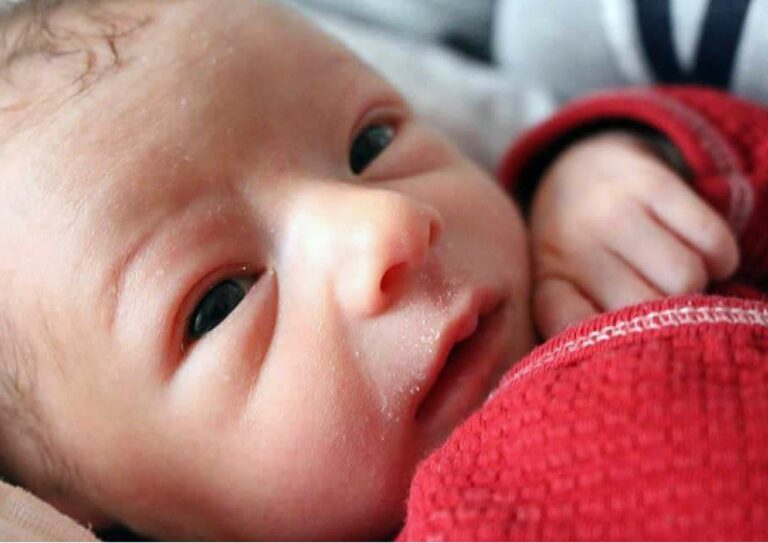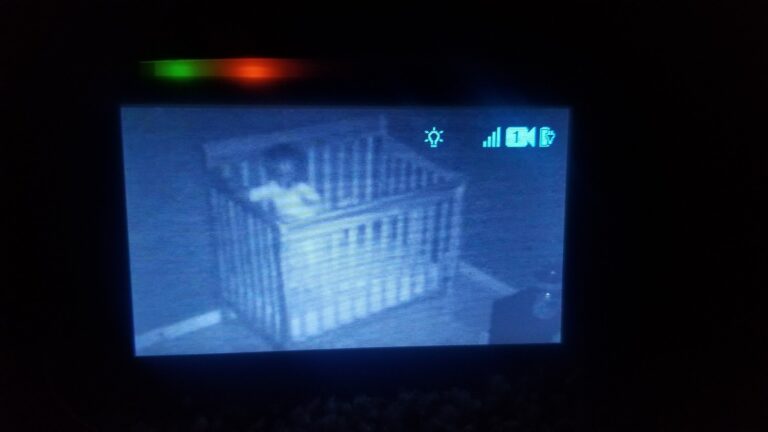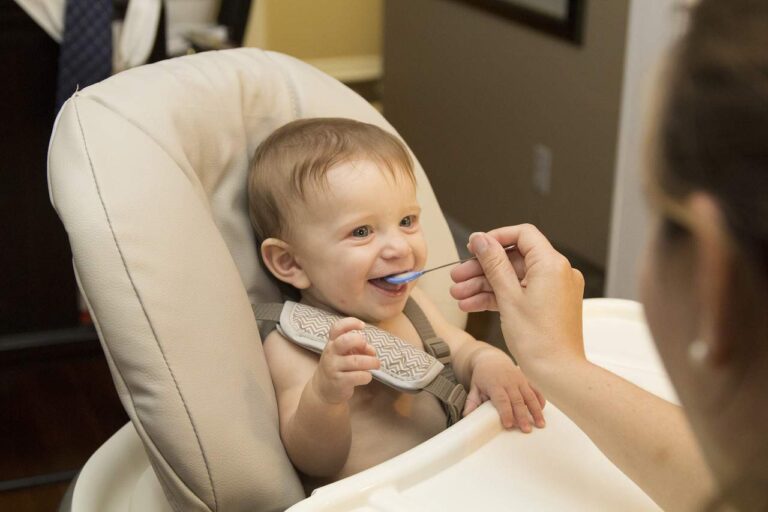Baby Fake Coughing? It’s More Common Than You Think
It’s an average day at home. You’re busy doing what you usually do (cleaning, working, take your pick). But while you’re minding your business, you suddenly hear your baby coughing in the other room.
You rush in to see what has happened. You approach your child’s crib, already thinking of all of the potential diagnoses your baby might have.
But then you see your baby smiling, even laughing at you!
It’s a sigh of relief to know your baby is safe and sound. But then another question arises: was your baby fake coughing?
Why is My Baby Fake Coughing?
Believe it or not, babies do fake coughs. In fact, they do a lot of quirky things like that. Babies pretend to cough so they can learn more about their surroundings.
Babies fake coughs to get attention from you. They’re learning social cues and how noises can trigger a reaction. They also mimic your behaviors and learn through observation.
Fake coughing usually comes around at 6 months. This is when babies become more socially aware and develop new communication skills. Your child is more conscious of your words and body language every day.
You might have zero clues on how to react to a situation like this. However, there is nothing wrong with interacting back. You can smile, laugh, and even fake a cough. As long as your baby is not showing signs of pain, there is nothing to worry about.
Communication Milestones You Need to Know
While we’re on the subject of communication: Let’s talk about communication milestones. Your baby is experiencing plenty of changes when they’re 6 months old. Some kids experience milestones earlier while others don’t.
6-month old babies can start experimenting with their vocal system. Asides from fake coughing, they can produce sounds like squealing, growling, yelling, and blowing raspberries. Your baby can make “goo-goo-gaa-gaa” sounds too, but that’s far from the only vocalization they can produce.
Your baby can also start recognizing sounds and where they come from. They begin to familiarize faces, turn their heads when people speak, use eye contact, and react to small requests.
It’s also the perfect time to introduce children’s books to them! Reading can help improve your child’s communication skills. They learn to actively listen, recognize words, and observe colorful pictures.
Some children might not develop everything mentioned above. Some children learn earlier while others are late bloomers. But be mindful if your infant either doesn’t laugh or react to stimuli or doesn’t appear to notice new sounds in their environment.
Okay, the Coughing is Getting Uncontrollable. What Do I Do?
Your child might make fake coughing a habit to get your attention. Over time, the cute quirk can turn into a nuisance. At 15 to 18 months, you can teach your child not to use fake coughing to receive attention.
Gently talk to your child about their behavior. Teach them better ways to get your attention, such as speaking up politely. It’s also best to teach your child that people who cough are sick and need a very different kind of attention.
Your child might start seeing kids coughing at school and imitate them. Teach your kid the difference between fake coughing and real coughing. You also should remind them that real and uncomfortable coughs are something they should report immediately to you.
When is Fake Coughing No Longer Fake?
It’s important to teach children to tell you or other trustworthy adults when they feel sick and have a cough. But some kids are too young to say what they’re feeling or are incapable of expressing their sickness in words. That’s why you should keep an eye out in case of any signs of complications.
A big giveaway is your baby’s body language. Notice how they react after coughing. Are they cheerful when they see you? Or are they feeling lethargic and cranky? If it’s the latter, then there must be an underlying problem.
Watch out for other symptoms, such as trouble breathing, coughing with blood, swelling tonsils, and fever. These symptoms will warrant a visit to the emergency room.
There are many potential reasons why your baby is having coughing fits. It can be the flu, pneumonia, allergies, an infection, or an obstruction in the lungs. Severe cases will require a visit to the ER, while milder cases will need a trip to the pediatrician.
Your child’s doctor might suggest medication if required. But you can also combine your child’s treatment with home remedies. You may:
- Keep them well-hydrated with breastmilk or formula. Fluid can make mucus wetter and easier to push out.
- Add more humidity to their room. You can either buy a humidifier or run hot water in your bathroom and turn it into a steam room.
- Use saline drops and suction to get rid of built-up mucus.
- Keep your baby away from pollutants. Close windows if you live somewhere with a lot of smog. If you or your partner smoke, do it far away from where your baby can’t smell you.
- Remove allergens from your house. Allergies can trigger coughing and other nasty symptoms.
- Give your infant as much rest as possible. Sleep can help them heal and recover from their sickness.
- Try giving them small amounts of honey to soothe a soar throat. But DON’T give honey to infants who are age 1 and under.
Always consult your pediatrician first when your infant is coughing before trying any home remedies. Your doctor will need to first diagnose your child in order to give them the appropriate treatment.
Conclusion
Babies do a lot of quirky behavior while growing up. One thing they do is fake a cough. Fake coughs are part of their communication development. It’s their way of learning how people react to a specific sound.
Fake coughing can sound a lot like real coughing. So make sure you observe for other signs of sickness.
But you have nothing to worry about if your child has a big smile on their face. Maybe you should take a break from whatever you’re doing and give them a little attention.









